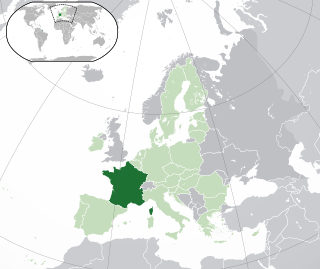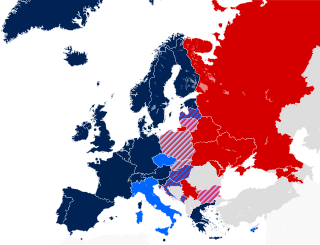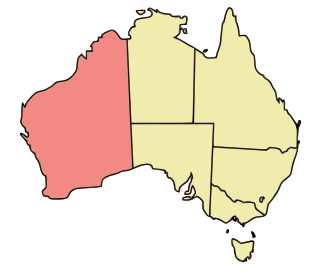The legal status of transgender people varies greatly around the world. Some countries have enacted laws protecting the rights of transgender individuals, but others have criminalized their gender identity or expression. In many cases, transgender individuals face discrimination in employment, housing, healthcare, and other areas of life.
The Charter of Human Rights and Freedoms, also known as the "Quebec Charter", is a statutory bill of rights and human rights code passed by the National Assembly of Quebec on June 27, 1975. It received Royal Assent from Lieutenant Governor Hugues Lapointe, coming into effect on June 28, 1976. Introduced by the Liberal government of Robert Bourassa, the Charter followed extensive preparatory work that began under the Union Nationale government of Daniel Johnson.

Transgender rights in Canada, including procedures for changing legal gender and protections from discrimination, vary among provinces and territories, due to Canada's nature as a federal state. According to the 2021 Canadian census, 59,460 Canadians identify as transgender. Canada was ranked third in Asher & Lyric's Global Trans Rights Index in 2023.

Lesbian, gay, bisexual, transgender, and queer (LGBTQ) rights in Chile have advanced significantly in the 21st century, and are now quite progressive.

Lesbian, gay, bisexual, and transgender (LGBT) people in Mali face legal and societal challenges not experienced by non-LGBTQ residents. Although same-sex sexual activity is not illegal in Mali, LGBT people face widespread discrimination among the broader population. According to the 2007 Pew Global Attitudes Project, 98 percent of Malian adults believed that homosexuality is considered something society should not accept, which was the highest rate of non-acceptance in the 45 countries surveyed. The Constitution of Mali has outlawed same-sex marriage since 2023.

Canadian lesbian, gay, bisexual, transgender, and queer (LGBTQ) rights are some of the most extensive in the world. Same-sex sexual activity, in private between consenting adults, was decriminalized in Canada on June 27, 1969, when the Criminal Law Amendment Act, 1968–69 was brought into force upon royal assent. In a landmark decision in 1995, Egan v Canada, the Supreme Court of Canada held that sexual orientation is constitutionally protected under the equality clause of the Canadian Charter of Rights and Freedoms. In 2005, Canada became the fourth country in the world, and the first in the Americas to legalize same-sex marriage. In 2022, Canada was the third country in the world, and the first in North America, to fully ban conversion therapy nationwide for both minors and adults.

Lesbian, gay, bisexual, transgender, and queer (LGBTQ) rights in France are some of the most progressive by world standards. Although same-sex sexual activity was a capital crime that often resulted in the death penalty during the Ancien Régime, all sodomy laws were repealed in 1791 during the French Revolution. However, a lesser-known indecent exposure law that often targeted LGBTQ people was introduced in 1960, before being repealed in 1980.

Lesbian, gay, bisexual, transgender, and queer (LGBTQ) people in Luxembourg have the same legal rights as non-LGBTQ people. Partnerships, which grant many of the benefits of marriage, have been recognised since 2004. In June 2014, the Luxembourgish Parliament passed a law enabling same-sex marriage and adoption rights, which took effect on 1 January 2015. Additionally, discrimination on the basis of sexual orientation and "change of sex" in employment, healthcare and the provision of goods and services is outlawed, and transgender people are allowed to change their legal gender on the basis of self-determination.

Lesbian, gay, bisexual, transgender, and queer (LGBTQ) rights in Switzerland are some of the most progressive by world standards. Social attitudes and the legal situation have liberalised at an increasing pace since the 1940s, in parallel to the situation in Europe and the Western world more generally. Legislation providing for same-sex marriage, same-sex adoption, and IVF access was accepted by 64% of voters in a referendum on 26 September 2021, and entered into force on 1 July 2022.

Lesbian, gay, bisexual, and transgender (LGBTQ) rights are widely diverse in Europe per country. 22 of the 38 countries that have legalised same-sex marriage worldwide are situated in Europe. A further 11 European countries have legalised civil unions or other forms of recognition for same-sex couples.

Lesbian, gay, bisexual and transgender (LGBTQ) rights in Western Australia have seen significant progress since the beginning of the 21st century, with male sex acts legal since 1990 and the state parliament passing comprehensive law reforms in 2002. The state decriminalised male homosexual acts in 1990 and was the first to grant full adoption rights to LGBT couples in 2002.

Simon Jolin-Barrette is a Canadian lawyer and politician in Quebec. He was elected to the National Assembly of Quebec in the 2014 Quebec election. He represents the riding of Borduas as a member of the Coalition Avenir Québec (CAQ).

Intersex people are born with sex characteristics, such as chromosomes, gonads, or genitals that, according to the United Nations Office of the High Commissioner for Human Rights, "do not fit typical binary notions of male or female bodies".
Transgender rights in Australia have legal protection under federal and state/territory laws, but the requirements for gender recognition vary depending on the jurisdiction. For example, birth certificates, recognised details certificates, and driver licences are regulated by the states and territories, while Medicare and passports are matters for the Commonwealth.

Multiple countries legally recognize non-binary or third gender classifications. These classifications are typically based on a person's gender identity. In some countries, such classifications may only be available to intersex people, born with sex characteristics that "do not fit the typical definitions for male or female bodies."

Since November 7, 2023, Chile bans unnecessary and non-consensual surgeries, procedures or medical treatments on intersex newborns, boys, girls and adolescents. Since March 15, 2022, Chile bans discrimination based on "sex characteristics" under Law 21,430 on Guarantees and Integral Protection of the Rights of Children and Adolescents. The country has the most advanced legal protection framework in Latin America.

Transgender rights in the Federal Republic of Germany are regulated by the Transsexuellengesetz since 1980, and indirectly affected by other laws like the Abstammungsrecht. The law initially required transgender people to undergo sex-reassignment surgery in order to have key identity documents changed. This has since been declared unconstitutional. The German government has pledged to replace the Transsexuellengesetz with the Selbstbestimmungsgesetz, which would remove the financial and bureaucratic hurdles necessary for legal gender and name changes. Discrimination protections on the basis of gender identity and sexual orientation vary across Germany, but discrimination in employment and the provision of goods and services is in principle banned countrywide.

Intersex people in Argentina have no recognition of their rights to physical integrity and bodily autonomy, and no specific protections from discrimination on the basis of sex characteristics. Cases also exist of children being denied access to birth certificates without their parents consenting to medical interventions. The National Institute Against Discrimination, Xenophobia and Racism and civil society organizations such as Justicia Intersex have called for the prohibition of unnecessary medical interventions and access to redress.

Citizens of Spain who are intersex face problems that the wider society does not encounter. Laws that provide protection against discrimination or genital mutilation for intersex people exist only in some autonomous communities rather than on a national level. The 3/2007 law is the current law in Spain which relates to legal gender change including the rights of intersex people, although a new law is about to be passed in the near future.

Gender self-identification or gender self-determination is the concept that a person's legal sex or gender is determined by their gender identity without any medical requirements, such as via statutory declaration.
















